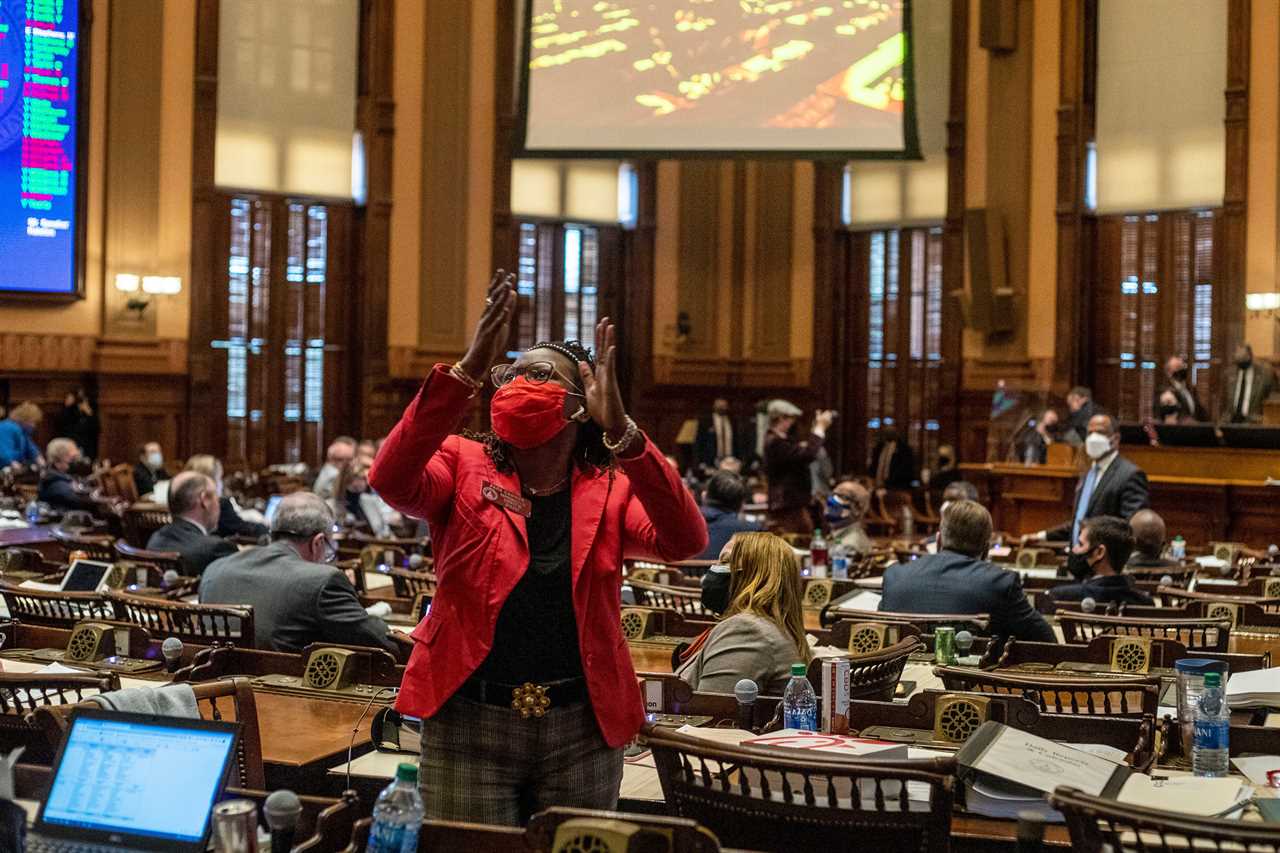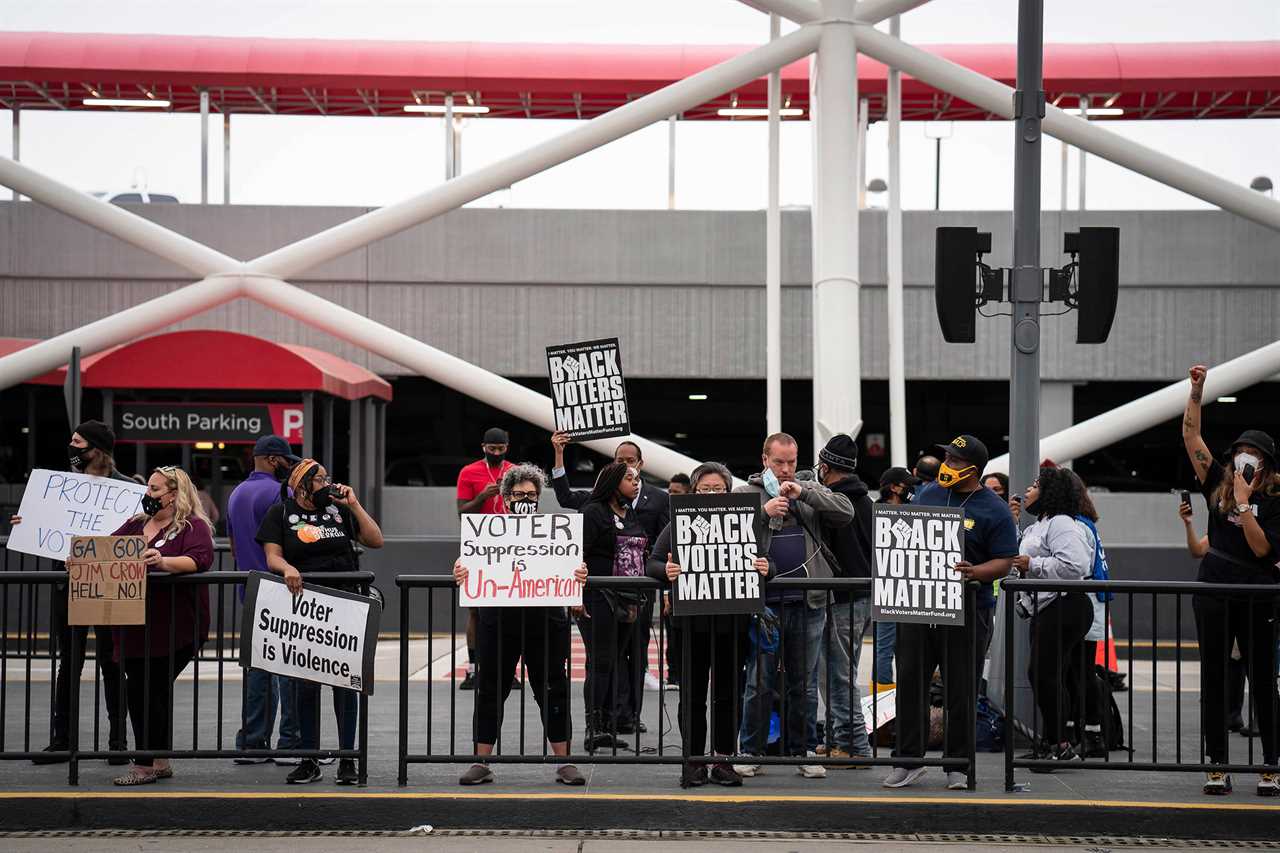When a protest campaign works, it brings a spotlight to a problem, energizes people already active, and forces opponents to explain themselves–over and over again. Likely most important, a successful campaign engages a broader public and pushes people to take sides.

So, the Rep. Park Cannon’s dramatic challenge to the new elections law in Georgia was always bigger than Rep. Cannon–and extends well beyond Georgia.
The big bill (you can read it here), a Republican response to the razor thin margins of the presidential and Senate elections just months ago, aims to diminish Black and youth voting, while making it a little bit easier to vote in rural districts. It’s hard not to see partisan intent here: Republican legislators in Georgia voted for it, while Democrats voted against it; Republican Governor Brian Kemp rushed to sign it, while Park Cannon was banging on his office door.
It’s possible that both sides have miscalculated the electoral implications of new restrictions on voting (analyses can be found here, here, here and many other sites), and advocates on all sides have made mistaken and misleading statements on the bill’s contents–but the legislative intent is very clear. Republicans think restrictions will help them win more elections; Democrats think higher voter turnout will help them win.
Georgia went first, but similar bills making it harder to vote are percolating in almost all of the American states, introduced by Republicans, including more restrictive provisions that Georgia considered and balked on. Meanwhile the Democratic-led House of Representatives has already passed the For the People Act, which would prohibit most of those restrictions.
Protests inside and outside the Georgia capitol have made the politics of access to the polls far more visible, and forced a bunch of corporate entities to engage and take sides.
Most visibly, Major League Baseball announced that it was relocating its All-Star game from Atlanta to….somewhere else, as a way to demonstrate the sport’s values. Note, baseball has never been a hotbed of progressive activism, unlike, say, the WNBA. Could it be that baseball’s current leadership has a stronger commitment to voting rights than previous owners and commissioners?

Maybe, but that’s not a very good explanation. Whatever Commissioner Rob Manfred’s opinions on democracy and voting rights, he would be remiss if he failed to consider the opinions of baseball players (and owners and coaches) and fans.
Some players and managers–and their organizations–had expressed discomfort about playing in Georgia in light of new restrictions on voting. At the same time, voting rights advocates called for boycotting Georgia businesses–to raise the costs of complying with the new voting restrictions. Playing an All-Star game in Atlanta risked tainting the sport by association. Instead, Georgians–likely including Atlantans who opposed the bill, will suffer adverse economic and social consequences. That’s how boycotts work. It will be tougher to carry the restrictions to the next round of states.
More than a few large businesses headquartered in Georgia soon found cause to express their commitments to voting rights. The CEOs of Coca-Cola and Delta Airlines–facing possible boycotts–issued strong statements against the bill and for voting rights. Large national companies issues similar statements, including Apple, Microsoft, Google and Citi. Surely, some Republican legislators in other states that value commerce and sports will be paying attention.
In a diatribe against “cancel culture,” the previous president called for a boycott of baseball–and of all the companies that had criticized Georgia’s new law and voting restrictions generally: Coca-Cola, Delta Airlines, JPMorgan Chase, ViacomCBS, Citigroup, Cisco, UPS and Merck.
Trump wants to play hardball, but the strategy of broad boycotts of large corporations is likely to brush back most Republican politicians well off this plate.
The prediction here is that a photo of Trump quaffing a Diet Coke will bubble out in the next week or so; not that long ago, he was known to summon soda with a button on his desk, and consumed upwards of two six-packs a day.
But carbonation is less important here than polarization. As the contest over voting rights develops, it will be harder and harder for people–and businesses–to avoid taking sides.
----------------------------------------
By: David S. Meyer
Title: Protest polarizes on voting: Corporate America takes sides
Sourced From: politicsoutdoors.com/2021/04/05/protest-polarizes-on-voting-corporate-america-takes-sides/
Published Date: Mon, 05 Apr 2021 23:05:36 +0000
Did you miss our previous article...
https://consumernewsnetwork.com/politics-us/september-20th-playbook






